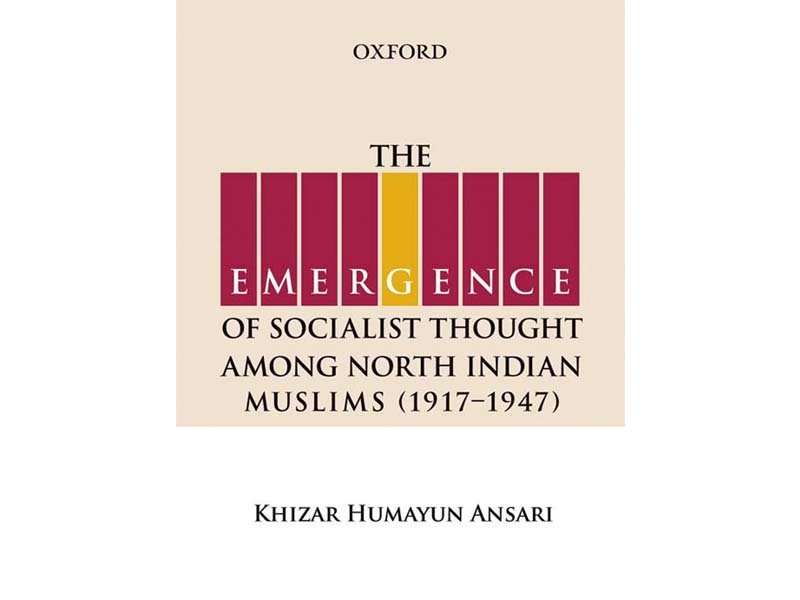
There is little to speak of left-wing politics in Pakistan. It never seemed to have recovered from the Rawalpindi Conspiracy Case of 1951 that resulted in a ban on the nascent Communist Party of Pakistan. One wonders why a movement with relatively sound ideological footing and the most politically-aware cadre met the fate that it did.
Professor Khizar Humayun Ansari, a recipient of the Order of the British Empire, studies the history of the socialist movement in India since its first stirrings in 1917 — three decades before the creation of Pakistan to 1947 and a little beyond with a specific focus on Muslims’ role which he thinks has not been dealt with exclusively in the work done so far on the subject.
The national narrative propagated through the outdated curriculum leaves out yawning gaps and presents a patchy and selective picture of the history that led to the British fleeing in a huff and leaving a mess behind. The history of socialism as told in this meticulously researched piece of work helps you understand the Partition itself besides offering an insight into what the socialist movement and its literary arm Progressive Writers’ Association (PWA) have been through.
Recollecting the journey of the movement in the subcontinent, the author tells us that the early heralds of the movement failed to see that religion had its uses for the public. Partial reading of Karl Marx eluded them from the fact that he had termed it a “cultural balm assuaging painful human experience” and “sigh of the oppressed. As per the author, secularists failed to sufficiently programme the role of religion in their consciousness and political understanding.
The various phases of the movement are neatly divided into chapters. Each chapter supports a conclusion at the end can be read as a stand-alone piece.
Through his work, the author has brought forth the names and roles of those early characters that otherwise would have remained unacknowledged. He has described how and under what circumstances Muslims were drawn towards socialism and passed through various stages of intellectual development in their journey from a purely religious movement to a secular one. The fact that he has skilfully weaved important national and international events of the time in his argument lends credibility to the narrative.
He recounts how in the late 19th century, conscientious Muslims worked for the reinterpretation of Islam to stay relevant in the changing circumstances. And how literature of the time accepted influences from the western leading lights in form, content and themes. He also explores how poets gradually started to prefer content over metre and focus on reality. The ghazal, which was earlier only a “sensual luxury” that also lamented the decline of Muslim supremacy, eventually dealt with realism and socio-political concerns.
Ansari’s argument sounds appealing when he says the dismal living standards; little progress toward the promised Home Rule and disappointment of “muhajireen” with the other Muslim states as opposed to the welfare state practices in the neighbouring Russia provided the basis for the formation of Communist Party of India (CPI) in 1920.
The relatively less-educated but politically conscious, Muslims also realised that in order to maintain the momentum, they needed to enlarge the scope of the movement by including the peasants and workers into a larger struggle of egalitarianism. So the movement turned into a broader struggle between capital and labour.
The author observes that most of the early workers offered dogmatic adherence to the principles of socialism and and made little effort to tailor-make their responses to suit local conditions. For those who always wondered about the affix ‘colonel’ that accompanies poet Faiz Ahmad Faiz, need to go through the chapter on PWA. Faiz, Pitras Bokhari and others who became part of the British propaganda machine were those who considered the World War II a “People’s war”. As a reward the CPI was declared legal and progressive writers’ pens started to support the Raj. These were the first chinks in the armour of the movement; many who supported the creation of Pakistan, did so on ideological rather than theological grounds. Schisms developed between writers who were sipping at the same fountain of ideology. While one group believed in the ‘art for art’s sake’, the other stood for the purposeful art. Many writers of sound socialist background including Quratulain Haider were declared persona non grata.
Through its simple narration of history, this book raises pertinent questions for those interested in the revival of left-wing ideology in Pakistan.
Title: The Emergence of Socialist Thought Among North Indian Muslims (1917-1947)
Author: Khizar Humayun Ansari
Publisher: Oxford University Press
ISBN: 978-0-19-906868-5
Pages: 504
Price: Rs1,295
The writer is a freelance contributor. He tweets
@tariqmasudmalik
Published in The Express Tribune, February 28th, 2016.
Like Life & Style on Facebook, follow @ETLifeandStyle on Twitter for the latest in fashion, gossip and entertainment.


1729080111-0/BeFunky-collage-(63)1729080111-0-165x106.webp)
1730838202-0/Trump-(1)1730838202-0-165x106.webp)













COMMENTS
Comments are moderated and generally will be posted if they are on-topic and not abusive.
For more information, please see our Comments FAQ